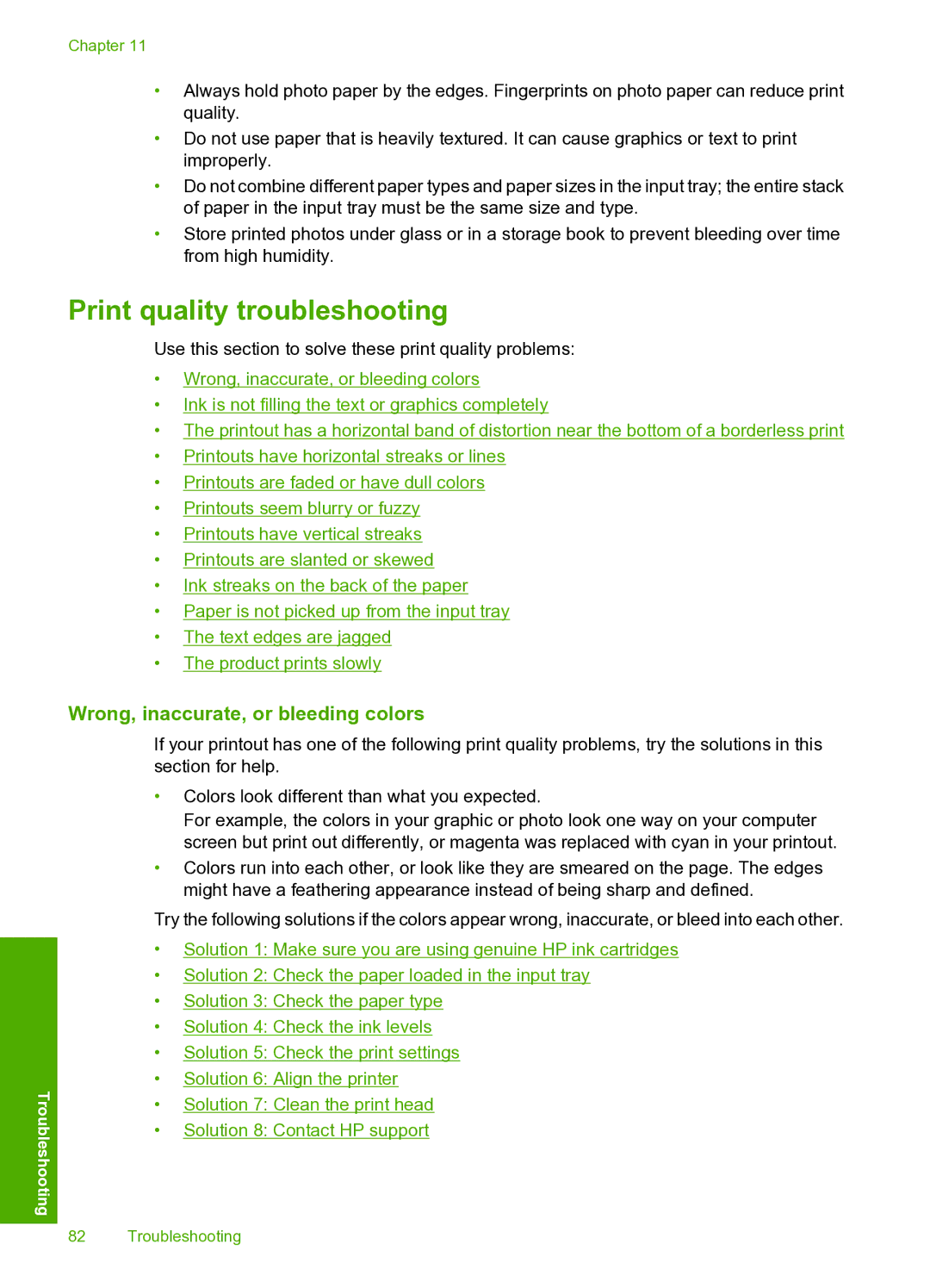Chapter 11
•Always hold photo paper by the edges. Fingerprints on photo paper can reduce print quality.
•Do not use paper that is heavily textured. It can cause graphics or text to print improperly.
•Do not combine different paper types and paper sizes in the input tray; the entire stack of paper in the input tray must be the same size and type.
•Store printed photos under glass or in a storage book to prevent bleeding over time from high humidity.
Print quality troubleshooting
Use this section to solve these print quality problems:
•Wrong, inaccurate, or bleeding colors
•Ink is not filling the text or graphics completely
•The printout has a horizontal band of distortion near the bottom of a borderless print
•Printouts have horizontal streaks or lines
•Printouts are faded or have dull colors
•Printouts seem blurry or fuzzy
•Printouts have vertical streaks
•Printouts are slanted or skewed
•Ink streaks on the back of the paper
•Paper is not picked up from the input tray
•The text edges are jagged
•The product prints slowly
Troubleshooting
Wrong, inaccurate, or bleeding colors
If your printout has one of the following print quality problems, try the solutions in this section for help.
•Colors look different than what you expected.
For example, the colors in your graphic or photo look one way on your computer screen but print out differently, or magenta was replaced with cyan in your printout.
•Colors run into each other, or look like they are smeared on the page. The edges might have a feathering appearance instead of being sharp and defined.
Try the following solutions if the colors appear wrong, inaccurate, or bleed into each other.
•Solution 1: Make sure you are using genuine HP ink cartridges
•Solution 2: Check the paper loaded in the input tray
•Solution 3: Check the paper type
•Solution 4: Check the ink levels
•Solution 5: Check the print settings
•Solution 6: Align the printer
•Solution 7: Clean the print head
•Solution 8: Contact HP support
82 Troubleshooting
